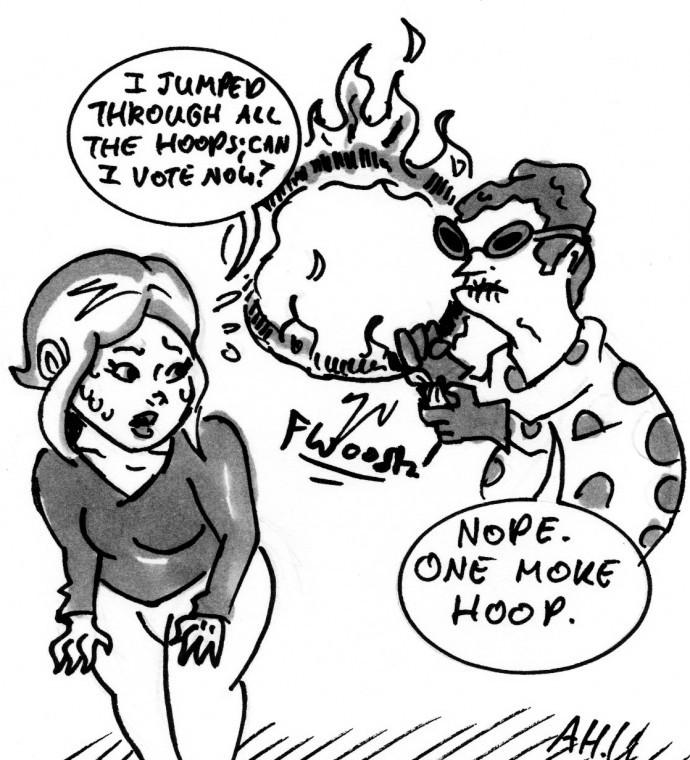Proposed voter registration laws are undemocratic
March 20, 2011
The most telling indicator of whether a society is truly democratic is the ability of its citizens to freely and openly voice their opinions.
This fundamental right takes its form in many incarnations, such as protesting, handing out pamphlets or standing atop a soapbox and proselytizing to indifferent passers-by.
But the most effective form is still voting.
The “one person, one vote” system is the most basic way to ensure that the people’s collective voice is being heard by a nation’s leaders and is an essential part of expressing one’s individual liberty.
The Republican Party, however, has recently undertaken legislative efforts in conservative states to limit the right to vote (at least, for those who are likely to vote against them).
College students are one of the groups who would be affected by the proposed restrictions.
According to a recent article from CampusProgress.org, the bill would require a valid photo ID for registering to vote, but it would also preclude students from using university-issued ID’s.
The argument for requiring state-issued photo ID’s is valid when considering the main concern, which proponents claim is eliminating voter fraud. But is this really that big of a problem?
A task force in Wisconsin, one of the states currently considering the legislation, found only 20 cases of voter fraud (out of about 3 million votes) in the 2008 elections, most of which were instances of felons voting.
Furthermore, some states are considering discontinuing the practice of same-day voting registration, which typically brings in a lot of youth votes.
It is also important to note the states that are considering the new restrictions have conservative majorities and that the groups who would be affected tend to vote Democrat.
In fact, in a recent meeting with a Tea Party-related group in New Hampshire, state House Speaker William O’Brien (R-Hillsborough) said that these requirements would primarily affect college towns that experience hundreds of same-day voter registrations and that those are the ballots of people who “are kids voting liberal, voting their feelings, with no life experience.”
It is not the goal, however, of this column to make this just another polarized issue that turns liberals against conservatives.
Everyone should be able to see that making it more difficult to vote is not conducive to upholding a true democracy.
Indeed, students in New Hampshire (conservatives, liberals and libertarians alike) recently united to stop the legislation because they saw it as an attack on their right to participate in the democratic process.
Electoral victories should be based on what people are voting on, not who is allowed to vote. If the elected officials who are proposing these restrictions want to win their elections, they should be able to do so by running on platforms that are in the best interest of the people they represent.
Instead, they are trying to silence the voices of those who may disagree with them.
These restrictions are a solution to a problem that doesn’t exist. The real problem is politicians continuing to sacrifice the interests of their constituents for their own benefit.



